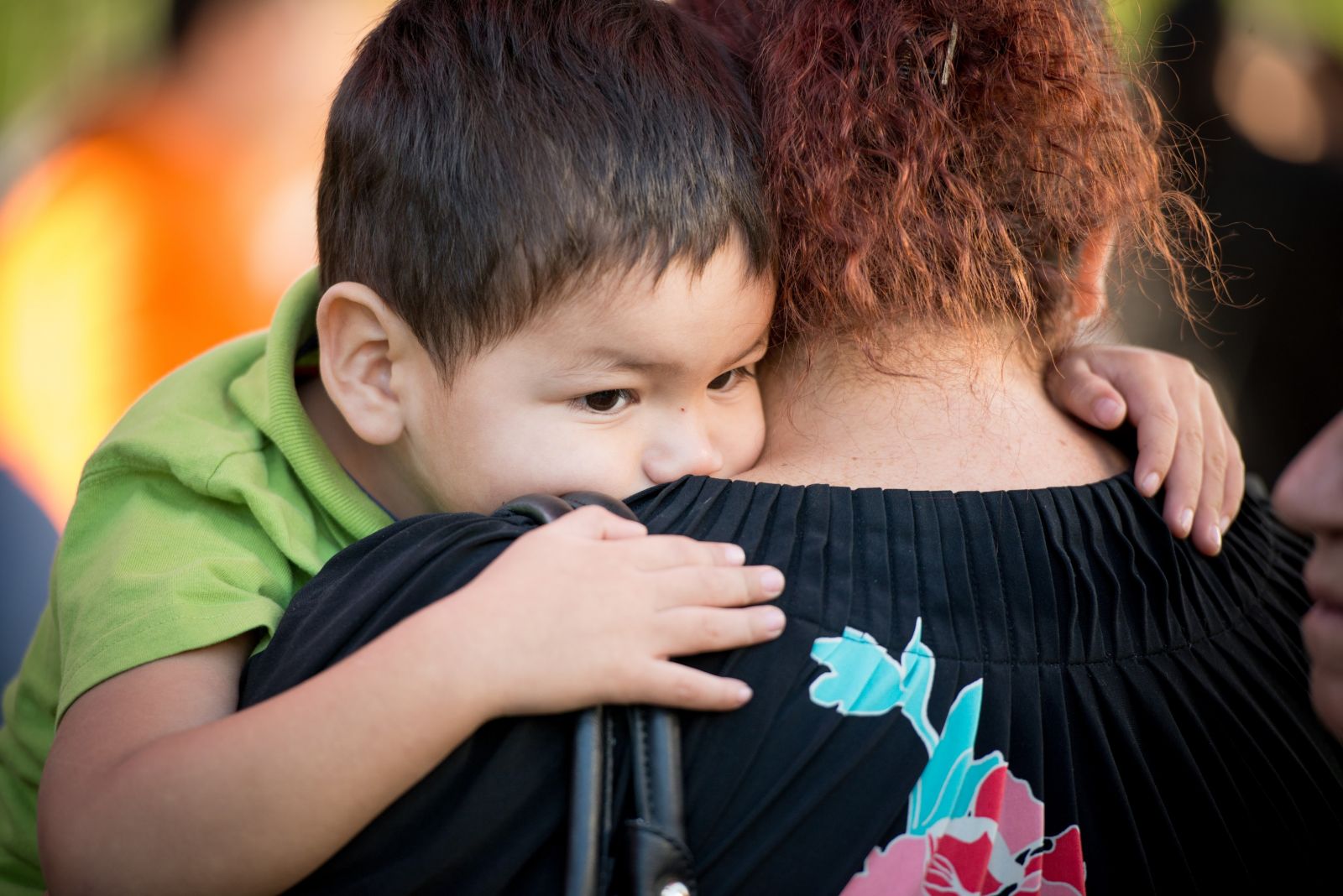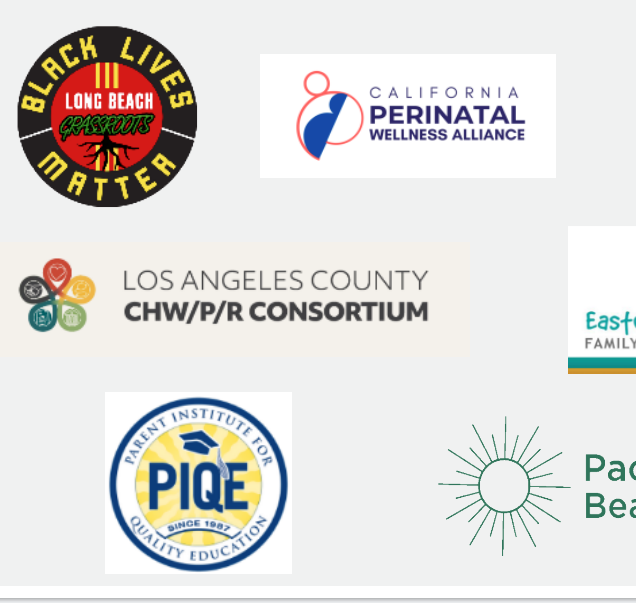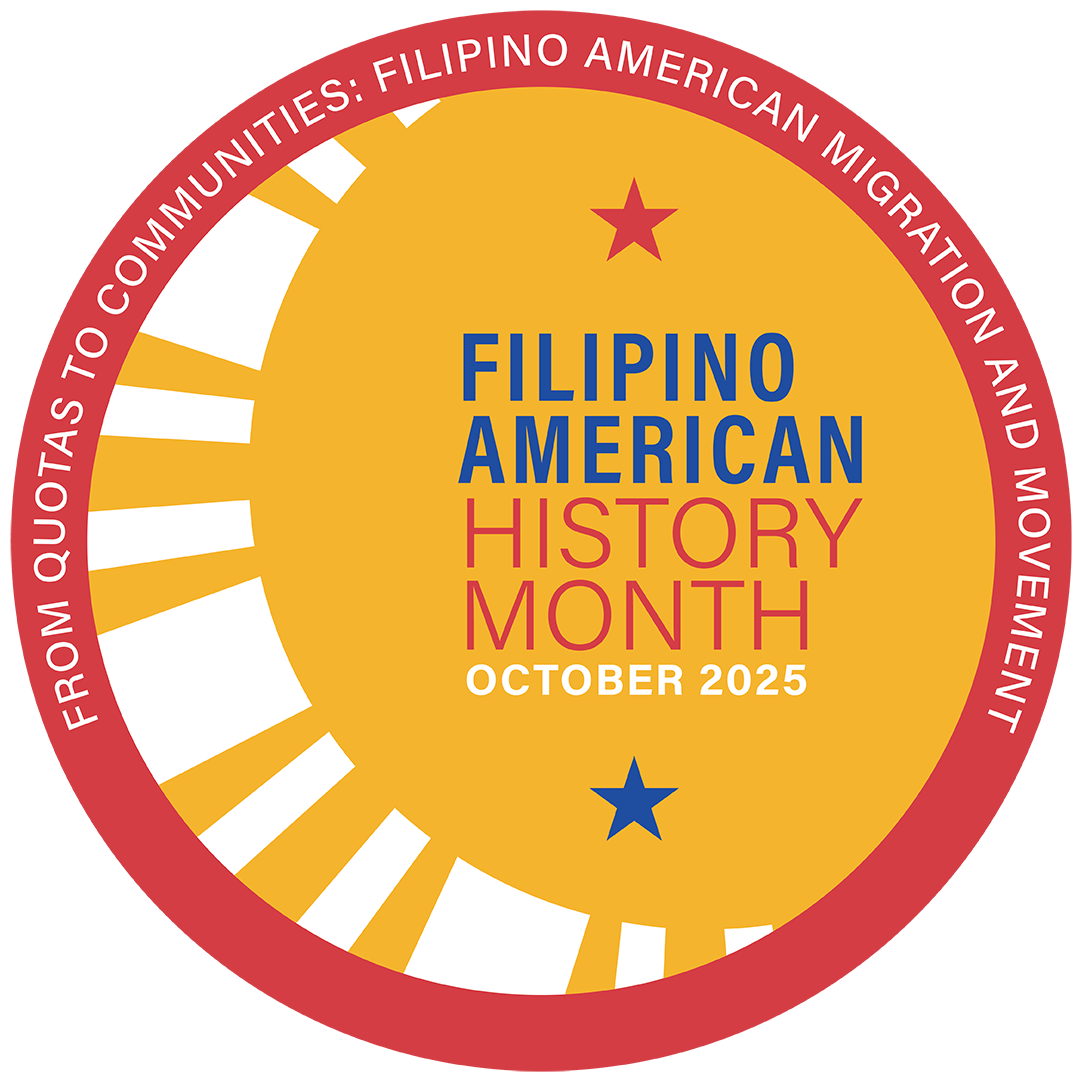When her father is deported, a girl in Watts must care for her young siblings so her mother can go to work.
An undocumented mother is afraid to report an attempted rape to police after dropping her child off at school in Southeast Los Angeles.
In El Monte, a woman must prepare to care for her granddaughter if her own daughter is deported.
This Halloween season, the looming fear for thousands of young children and their families in Los Angeles County does not take the form of a headless horseman, a malevolent monster or a creepy clown. It is found in the specter of deportation that haunts their homes.
As a result of multiple executive orders on immigration by President Trump earlier this year and heightened immigration enforcement activities, this specter has arisen to grip immigrant families with young children in nightmarish situations — including the ones you are about to read. This article will also highlight what First 5 LA is doing to address the impact of immigration fears on young children, such as linking anxious parents to resources, helping them understand their rights and providing tools to comfort children during times of stress.
(Editor’s Note: The names of a few sources in this article have been changed to protect their anonymity. Those names are denoted with an asterisk *.)
Tales of Tragedy and Empowerment
In Watts, a father and sole breadwinner was picked up by immigration officials earlier this year while working at a sewing factory and deported, leaving behind his wife and four children, including two children under age 5.
“The children were scared, confused. They didn’t understand why their father did not come home from work,” recalled Mary Ann Cortez, a friend of the family and member of the Best Start Watts-Willowbrook Community Partnership.
“It makes it hard because children have to become adults at a very young age.” -Mary Ann Cortez
The sudden lack of income caused the mother to lose their one-bedroom apartment, Cortez said, forcing all five of them to cram into a single rented room in someone else’s home, where the mother sleeps on the floor. Unwilling to take her 3-year-old to Head Start to begin preschool for fear the paperwork will lead immigration officials to her family, the mother heads out each day to find work cleaning homes and scour local pantries for food — often leaving her 3- and 1-year-old at home in the care of her 12-year-old daughter.
“It makes it hard because children have to become adults at a very young age,” Cortez said.
Cortez was one of those Best Start partnership members who attended a February community meeting in Watts sponsored by the City of Los Angeles and community organizations to help immigrants understand their rights, as well as what U.S. Immigration and Custom Enforcement (ICE) can or cannot do and the role of the Los Angeles Police Department. (Learn more about city efforts here.)

“We wanted to make sure people have accurate information to feel safe and secure and be able to report crimes as they come up and not fear deportation,” said Luis Rivera, Community Business Manager with the L.A. Mayor Eric Garcetti’s office, who attended the meeting. “We have statistics from the LAPD of a decrease in reporting of domestic violence for fear of deportation.”
This was almost the case this spring, when a Best Start Southeast L.A. County Cities (SELA) member disclosed during a partnership meeting that she had been the victim of an attempted rape.
“This mother had dropped her kid off at school and someone had followed her home,” recalled Maria Ochoa, a health care professional and SELA member. “She was the victim of a rape attempt on the riverwalk behind her apartments. She was able to flee, but she was afraid to report it because she is here illegally.”
When Ochoa heard the story, she volunteered to go with the mother to the local police station to make a report. The mom was also able to get connected to therapy.
“She was able to flee, but she was afraid to report it because she is here illegally.” -Maria Ochoa
“Reporting this was not only for her own safety, but for the safety of the community so that person doesn’t continue attacking other victims,” Ochoa said. “Now that she and I know the process, we can help others. It was very empowering.”
 This empowerment is growing for members of First 5 LA-funded Best Start Community partnerships who are working with trusted government officials and community-based organizations on meetings that provide information and resources to better respond to the needs of families in the immigrant community.
This empowerment is growing for members of First 5 LA-funded Best Start Community partnerships who are working with trusted government officials and community-based organizations on meetings that provide information and resources to better respond to the needs of families in the immigrant community.
“During our February meeting, Best Start member Mary Ann Cortez asked, ‘What happens to your child if a parent is taken?’” Rodriguez recalled. “From that meeting was the genesis of a second meeting by the city in August which was focused on guardianship, citizenship and tenant rights. Leaders of Best Start wanted to make sure people were informed. They have their fingers on the pulse of the community.”
The Fear of Losing One Child and Gaining Another
Meanwhile, in El Monte, Beth* was worried.
Her undocumented daughter was suddenly in danger of deportation, leaving open the question of what would happen to her young granddaughter in a worst-case scenario.
“The conversation we had is that I would be caretaker of my granddaughter if she was deported,” Beth said. “This is an unpleasant conversation because who would want to abandon their child?”
Fortunately, Beth is a member of Best Start South El Monte/El Monte Community Partnership, which held a guardianship training in September that included a number of community-based organizations, as well as a speaker from the Coalition for Humane Immigrant Rights (CHIRLA).
“This was the kind of information that needs to be shared with the community depending on the kind of guardianship you want for your child,” Beth said. “I attended so I could understand all this better — not just for myself and my family, but for my neighbors as an active member of Best Start.”
After the event, Beth said she felt relieved “because sometimes one feels stressed out just considering all the scenarios.”
“This adds to all of the trauma families in the community are already experiencing — poverty, crime, unsafe neighborhoods, lack of employment.” -Roberto Roque
“This adds to all of the trauma families in the community are already experiencing — poverty, crime, unsafe neighborhoods, lack of employment,” said First 5 LA Communities Program Officer Roberto Roque. “That additional stress in the household increases the safety risks for children.”
Indeed, research reveals that this stress on immigrant families — from fear of deportation to the actual deportation of a parent — can have a negative impact on a young child’s mental and physical health, ranging from depression and anxiety to stomachaches and headaches. Such health concerns have prompted calls for action by members of the American Academy of Pediatricians. Additionally, a report from The Children’s Partnership and the California Immigrant Policy Center states that when parents are taken away, children left behind face dramatically reduced family incomes, housing and food insecurity, and an increased risk of entering the child welfare system.
The breadth of this impact is amplified by the number of children in L.A. County potentially affected. Half of California’s children are part of an immigrant family, with one in six children in California having at least one undocumented parent. According to the Migration Policy Institute’s analysis of 2014 U.S. Census data, L.A. County has more than 1 million undocumented immigrants, of which 361,000 are parents.
To ensure that services and systems in L.A. County are more aware of the pervasiveness of trauma, responsive to people who have experienced trauma and actively work to resist re-traumatization, First 5 LA in 2016, teamed up with the California Community Foundation, the Ralph M. Parsons Foundation and the California Endowment to launch a trauma-informed care systems change initiative, with the commitment of more than 30 public nonprofit and philanthropic partners.
“First 5 LA recognizes that trauma can have a detrimental impact on young children and their families, making our efforts around promotion of trauma-informed service delivery systems that recognize the signs of trauma and help families access needed services that much more critical in our current political climate,” said Tara Ficek, First 5 LA’s Director of Health Systems.
“Why Should They Have to Suffer?”
Earlier this year, Julie* benefited from First 5 LA’s voluntary home visiting program, Welcome Baby, to help bring her second daughter into the world. Now she worries how much longer she and her husband will be there for both of her children.
Julie’s husband failed to meet the October 5 deadline to renew his application in the Deferred Action for Childhood Arrivals (DACA) program, which provided two-year renewable stays for certain undocumented immigrants who entered the country before their 16th birthday. In September, the Trump Administration announced it is ending DACA, giving Congress six months to legalize it. DACA has protected nearly 800,000 people from deportation since it was created by the Obama Administration in 2012.
As a result, Julie’s undocumented husband is facing an uncertain future: After his DACA permit expires, he could be deported. On top of this fear is the fate of Julia, who was able to renew her DACA application but fears her own deportation in two years when her DACA permit is slated to expire.
“I know I can take them to Mexico but there’s a lot of poverty over there. There’s no way they would survive.” -Julie
“Do I only have two years to be with my girls and after that am I never going to see them again?” asked Julie, who lives in Los Angeles. “I know I can take them to Mexico but there’s a lot of poverty over there. There’s no way they would survive. They belong here. Why should they have to suffer because I have to go back?”
Julie and her husband are not alone. Immigration experts say the shortness of time to renew — normally six months — and the $495 application fee created a financial stress for many low-income immigrant families, resulting in as many as 15,000 people in L.A. County alone who were unable to meet the DACA deadline and leaving them without protection from deportation.
The DACA dilemma is augmenting the insecurity and anxiety already felt by immigrant families following Trump’s earlier immigration actions this year, which reportedly is increasing their reluctance to access services and resources to which they are entitled. A number of First 5 LA grantees, partners and fellow child advocacy organizations throughout the county have reported a decrease in services being utilized by immigrant families.
 “We fund systems change. If families are unable to access the systems that provide services they are entitled to, this is of grave concern to us,” said Jennifer Pippard, Director of First 5 LA’s Department of Strategic Partnerships.
“We fund systems change. If families are unable to access the systems that provide services they are entitled to, this is of grave concern to us,” said Jennifer Pippard, Director of First 5 LA’s Department of Strategic Partnerships.
Mayra E. Alvarez, president of The Children’s Partnership, provided a few disturbing details.
“We have heard that families are reluctant to utilize services or participate in programs,” Alvarez said. This includes a drop in immigrant women missing appointments and not picking up food at food banks. At the same time, Alvarez added that “we have heard from our partners that there is an increase in families seeking mental health services and support.”
This angst is also being reported in Welcome Baby, which provides L.A. County pregnant women and new families with information, support and a trusted parent coach to help them through the journey of pregnancy and early parenthood. Home visitors have been asked by parents in the program if they could assume guardianship of their children if they are deported.
“We have also heard anecdotally that immigration fears are having an impact on families’ participation in the program, so we are monitoring enrollment to see if that is actually happening,” said Diana Careaga, Senior Program Officer for First 5 LA’s Family Supports department. “We are emphasizing that this is a voluntary program not connected to government services, and client information is not shared outside of the program.”
“It Was Heartbreaking and So Unfair”
As a result of the fear that information will be shared with immigration authorities, some undocumented parents have refused to enroll their children in early education programs and even withdrawn them from preschool altogether, First 5 LA has learned.
“We offered the mom other options for programs, but she was too overwhelmed.” -Elizabeth Melendrez
Elizabeth Melendrez of the Child Care Resource Center (CCRC) shared how two children were pulled from their preschool for fear that their undocumented father might be picked up while dropping them off in Eagle Rock, which is not far from the school in Highland Park where a father was picked up by ICE while taking his daughter to class.
“We offered the mom other options for programs, but she was too overwhelmed,” said Melendrez, a resource manager with CCRC. “It was heartbreaking and so unfair.”
Withholding early education for children due to immigration fears can have significant impact of a child’s development, said Katie Fallin Kenyon, First 5 LA’s Director of Early Care and Education.
“We’re concerned from the child’s perspective that they are falling behind and losing the opportunity to be better prepared for school, including opportunities to connect with other children,” Kenyon said. “Being pulled out of a caring environment like an ECE program can add to the insecurity and stress they are feeling with their parents at home,” she added.
To further understand these impacts on ECE, funding from First 5 LA to the California Community Foundation (CCF) will be used to organize a future convening for ECE providers to share information about how immigration policy changes are affecting families with young children.
“We need to collect this information to see what parents need,” said Pippard, who oversees the development of First 5 LA’s strategic partnerships.
The funding comes from a strategic partnership approved by First 5 LA’s Board in June between First 5 LA and CCF in the amount of $74,000 to contribute to what was then called the Deportation Defense Fund. Now named LA for All, the CCF initiative involves a wide variety of public and private partners. First 5 LA funding will ensure organizations serving young children and their immigrant families (such as early care and education providers, home visitors and WIC staff) have information to reassure clients about protection of their information and the importance of continuing to utilize the public resources available to their families.
“This is not a one-time thing, we’re in it for the long haul.” -Jennifer Pippard
In the coming months, Pippard said, First 5 LA staff will be back before the Board with a more comprehensive funding proposal in partnership with CCF’s immigration initiative.
“This is not a one-time thing,” Pippard said. “We’re in it for the long haul.”
Taking a Stand
Indeed, as immigration and deportation actions in Washington continue to develop, so has First 5 LA’s strategy to work in partnership with other organizations to address the impact of immigration fears on young children in L.A. County, as noted in a number of recent actions:
- Joining 200 philanthropic institutions representing local, state, regional and national foundations from across the country in September in signing the bipartisan Grantmakers Concerned with Immigrants and Refugees (GCIR) Joint Statement.
- Providing a comprehensive directory of immigration resources on First 5 LA’s Parenting website.
- Joining First 5 Commissions across the state to distribute a helpful resource guide titled “Care, Cope, Connect” developed by Sesame Workshop to help parents initiate conversations with their children about community stress and separation.
- Hosting a forum with Abriendo Puertas in October to discuss immigration and the impact these uncertain political times have on children and families. Held at the California Endowment, the event featured stories about families’ concerns over their legal status, being detained, family separation and living in daily fear.
- Examining what role First 5 LA can play in providing adequate outreach and response to support the upcoming 2020 Census. The data gathered by the Census is critical to First 5 LA’s current and future programming and planning efforts.
Through these actions, as well as through its Best Start Communities efforts, immigration experts say First 5 LA is elevating its voice with other partners to drive a separate narrative: What about the children?
“We aren’t immigration experts. Our expertise is young kids and what it takes to support their healthy development.” -Kim Belshé
“Their mission is to advance outcomes for children,” said Joseph Villela, Director of Policy and Advocacy at CHIRLA. “Their voice is critical. It’s going to have an impact.”
“We aren’t immigration experts. Our expertise is young kids and what it takes to support their healthy development,” said First 5 LA Executive Director Kim Belshé. “We understand the impact fear and uncertainty can have on child trauma and well-being. As advocates for kids, we see our role as highlighting the impact every policy has on young children and empowering parents as their child’s strongest advocate. And let’s be clear, children are at the center of immigration.”
Continued Belshé: “All families, including immigrant families, have a right to engage with the public systems that exist to serve their health, education and caregiving needs. Our commitment is to strengthen all families and improve outcomes for all children. That’s why we are taking several steps in partnership with others to help parents understand their continued rights to receive services for their young children. Here in Los Angeles, we stand up for kids.”






